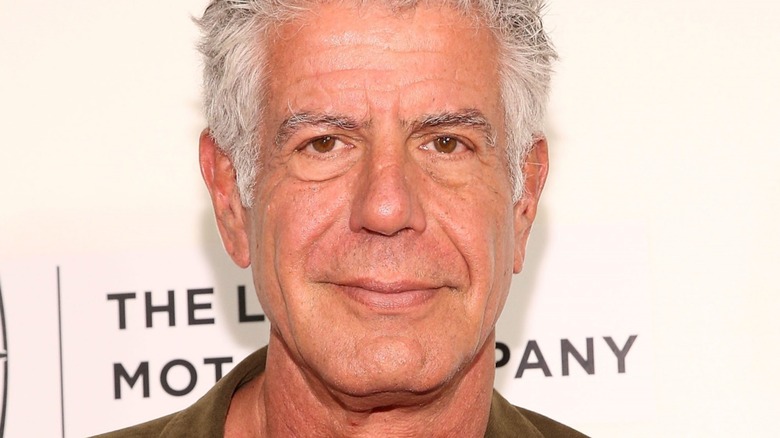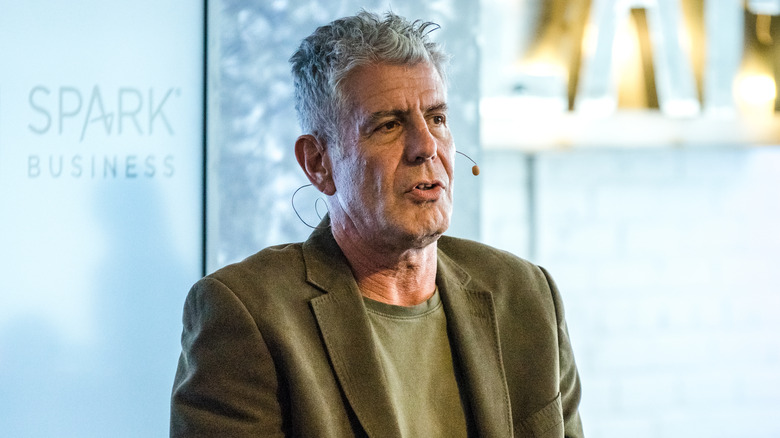Why Anthony Bourdain Didn't Think It Was Always Wise To Be 'Sensible'
Celebrity chef Anthony Bourdain was a man who was known for challenging the status quo even if that meant taking risks. One of the most notable examples, perhaps, is a celebrated essay that he wrote for the New Yorker in 1999 titled, "Don't Eat Before Reading This," where he revealed some surprising tidbits about the restaurant industry, such as the fact that it's best to order seafood dishes on a Tuesday. According to Bourdain, ordering fish on a Monday might mean that you'll end up eating old fish that's been in the pantry since Friday.
He also expressed his love for the world of food and wrote that he enjoyed working with "the dreamers, the crackpots, the refugees, and the sociopaths" that he came across in his field. Bourdain added, "Most of us who live and operate in the culinary underworld are in some fundamental way dysfunctional. We've all chosen to turn our backs on the nine-to-five, on ever having a Friday or Saturday night off, on ever having a normal relationship with a non-cook."
For Bourdain, it was also important to acknowledge that coming across as a reasonable person 24/7 was not the best idea and that he chose to avoid it (via Medium).
Anthony Bourdain was an out-of-the-box type of thinking
Anthony Bourdain cited love as an example and said that there's no escaping it: We're all fools in love at times and that is the right way to be (via Medium ). He wrote that to truly love someone, it's important to let go and take a chance, which means "a denial of statistics, empirical evidence and good sense."
Elaborating on his point, the chef mentioned that it's probably worthwhile to not obsess over making "sensible choices." He advised others to step away from the herd and take a chance whenever necessary. Bourdain wrote, "What is good for us in the short term is not always the 'best' way.'" Basically, the chef wanted people to look beyond what was in front of them and think big instead of being afraid of failure. "That's the kind of shopkeeper mentality that got the world into a whole lot of sh-t back in the day," he said.

